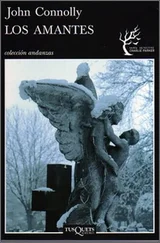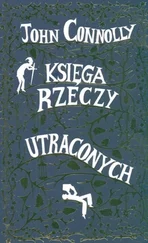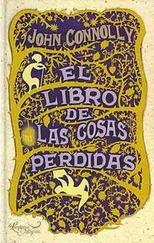
Easton was a typical New Hampshire town: not quite pretty, but not ugly either; a little too far away from the big winter playgrounds to enjoy much of a tourist trade from them, but close enough for the locals to hop in a car and spend a day on the slopes, if they chose. It had a couple of bars, a main street on which more than half of the businesses made a reasonable income year-round, and one motel, which was as much a hobby as a business for its owner. Its school had an adequate football team and a basketball team that most people preferred not to mention. It also had a sense of civic pride out of all proportion to its apparently modest aspect; a conscientious, if frugal, town council; a police department that consisted of just two full-time cops and a handful of part-timers; and a crime rate just slightly below the average for a town of its size. All told, the chief sometimes reflected, there were better places to live, but there were also far, far worse.
Frank Lopez, the chief’s father, worked as an accountant in Easton from 1955 until 1994, when he retired and moved to Santa Barbara with his wife. His son, Jim, had by that time been a policeman in Manchester for almost twenty years. In 2001, the chief’s job in Easton became vacant and Jim Lopez applied for it and got it. He had his quarter century under his belt, and while he didn’t want to leave law enforcement, he fancied a quieter life for himself. His marriage had broken up ten years previously, childless but also without bitterness, and Easton, his hometown, offered him familiarity, comfort, and a place in which to settle comfortably into middle age. The job didn’t tax him unduly, he was liked and respected, and he had met a woman whom he suspected he loved.
All told, Jim Lopez was happier than he had ever been.
The Easton Motel was quiet that week. After the fuss about the hikers, Jed Wheaton was kind of grateful not to have too many guests to worry about. Things would pick up again once the snows came, when Easton usually enjoyed a small trickle-down from the winter tourist trade. It would still be a bad year, but something might be salvaged from it.
Of the twelve rooms, only a couple were currently occupied. There were two young Japanese tourists in one, who giggled a lot and took too many photographs but kept their room so tidy that Maria, the maid, said she felt like she was making more of a mess than they were. They folded their towels, didn’t leave hairs in the shower or the sink, and even made their own beds.
“Wouldn’t it be great if everybody who stayed here was like them?” Maria asked Jed that morning, after she came back from checking the rooms.
“Yeah, wonderful,” he replied. “I could fire you and spend the money I saved on making my old age more comfortable.”
“Tcah!” Maria dismissed him with a flick of her wrist. “You’d miss me if I wasn’t here. You like having a pretty young girl around.”
Maria was Puerto Rican, big and ribald, and happily married to the town’s best mechanic. She might have been a pretty girl once, but now she looked like she’d just eaten one. Maria worked hard, was never late or bad-tempered, took care of the desk and the reservations, and generally had more to do with keeping the motel running from day to day than Jed did. In turn, he paid her well and didn’t complain when she used her knowledge of the inner workings of the vending machines to feed herself the occasional free candy bar.
As if to test her skills, and Jed’s tolerance, Maria walked over to the big red candy machine in the corner of the office, put her ear to its side, listening to it like a safecracker would to a safe, then gave it a sharp slap with the palm of her hand.
A Snickers bar fell from its perch into the tray.
“How do you do that?” asked Jed, not for the first time. “I try, but I just end up hurting my hand.”
Then, as if realizing that he was effectively condoning theft against himself, he continued: “And if you’re going to do that, at least don’t do it in front of me. It’s like robbing a bank and asking for a receipt.”
Maria sat down and unwrapped the candy bar.
“You want some?”
“No. Thank you. Why am I even saying ‘Thank you’? I paid for the damn thing.”
“What’d it cost you, a whole seventy-five cents?”
“It’s the principle.”
“Yah, yah, yah: the principle. Some principle, costs seventy-five cents. Even with what you pay me, I could buy me a lot of principles.”
“Yeah, well maybe you should consider investing in some, like not stealing, for one.”
“It’s not stealing, you see me doing it and you don’t say nothing. That’s giving, not stealing.”
Jed left her to it. He reviewed the guest register. They had nobody else checking in that day, then two confirmeds for Thursday and five for Friday. Combined with those who might follow the signs from the highway when they tired of driving, it didn’t look so bad for the rest of the week.
“Guy in twelve,” Maria said.
“What about him?”
Maria stood, walked to the door to check that there was nobody around, then leaned in toward Jed.
“I don’t like him.”
The guest in room 12 had arrived in darkness two nights before. Jed’s son, Phil, who was home for a couple of days from college and didn’t mind earning a few extra bucks on the desk, had checked him in.
“Why? He won’t let you steal his candy?”
Maria didn’t reply immediately. Usually, she was quick to make her feelings known. Jed put his pen down and looked serious.
“He do something to you?” he asked.
Maria shook her head.
“So what is it?”
“He’s got a bad feeling about him,” she said. “I tell you, I went to clean his room. The drapes were closed, but there was no sign on the door. I knocked, heard nothing, so I opened the door.”
“And?”
“He was just…sitting there, on the bed. It didn’t look slept in. He was just there, his hands on his knees, facing the door like he’d been waiting for me to come in. I said I was sorry and he said, no, it was all right, I could come in. I said, no, I’ll come back, but he insisted. He said he didn’t sleep so good at night, and that he might try to have a nap later in the morning, so he’d prefer if I cleaned the room now. But it didn’t look like there was nothing to clean, so I said to him, what do you want me to do? He told me he’d used some towels in the bathroom, that was all.
“So I got some clean towels and went to the bathroom. He was still sitting on the bed, but I could see him watching me. He was smiling, and I felt like there was something wrong.”
For the first time, Jed noticed that Maria had not eaten the candy bar. It remained, untouched, in her hand. She saw him looking at it, then carefully wrapped it and put it on the counter.
“I don’t want it now,” she said.
Jed thought that she was about to cry.
“That’s okay,” he said. “I’ll put it in the refrigerator. You can eat it whenever you want.”
He picked it up and placed it carefully on a shelf in the little unit behind the counter.
“Go on,” he said. “You were telling me about twelve.”
She nodded.
“I went into the bathroom, and all of the towels were on the floor. When I picked them up, I think there was blood on them.”
“Blood?”
“I think so, yes, but it was black, like oil.”
“Maybe it was oil.”
Jed wasn’t sure which was worse: blood or some jackass using his towels to mop up an oil leak from his car.
“Maybe. I don’t know. I got them in a bag in the laundry. I can show you.”
“Well, we’ll see. So that’s it: dirty towels?”
Читать дальше













